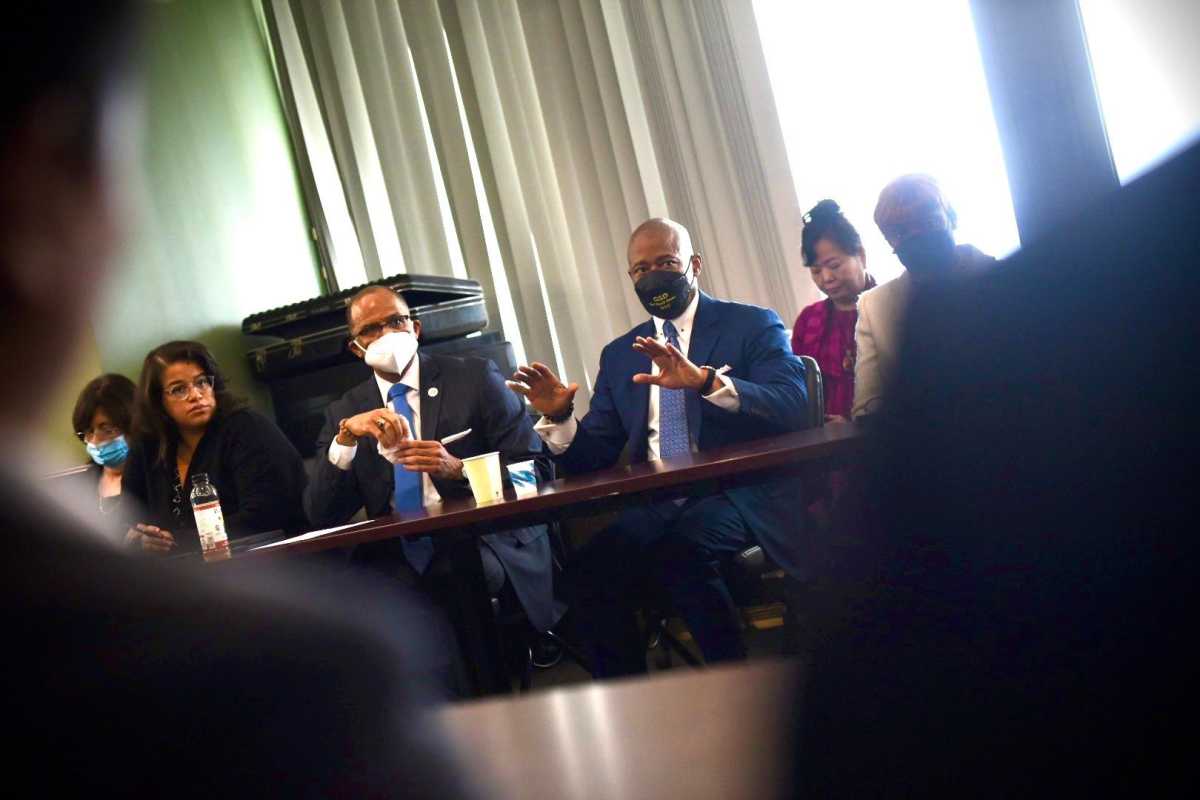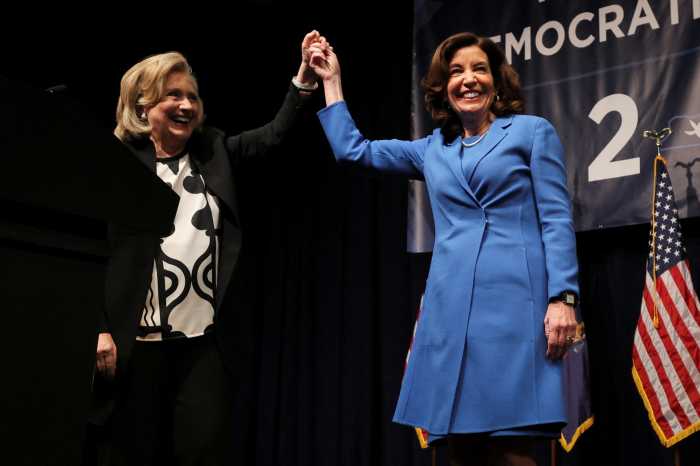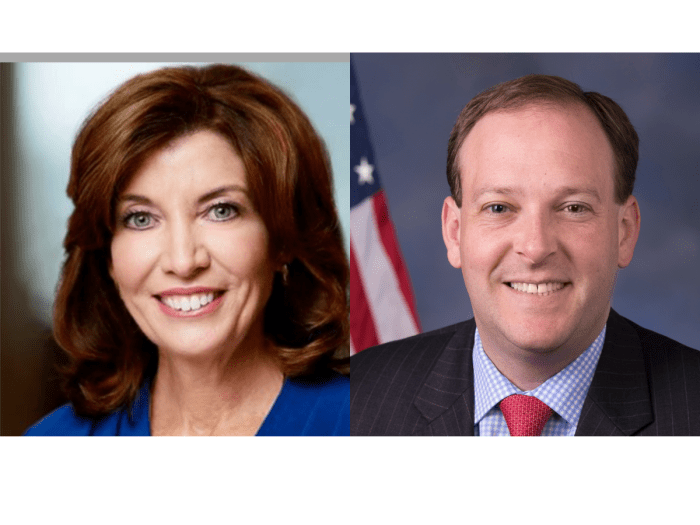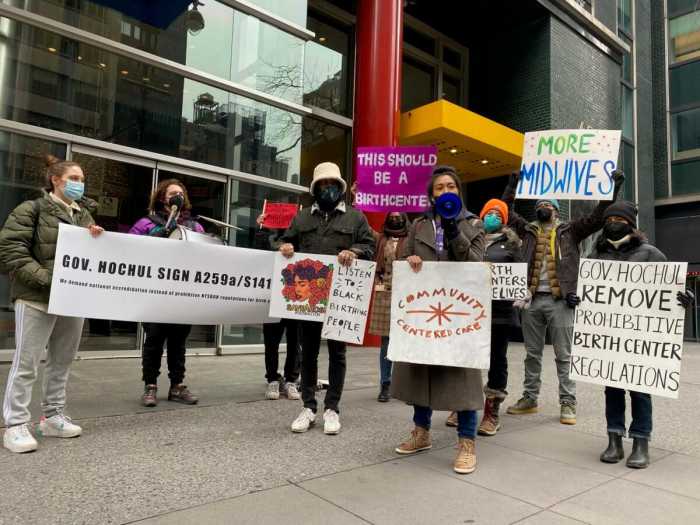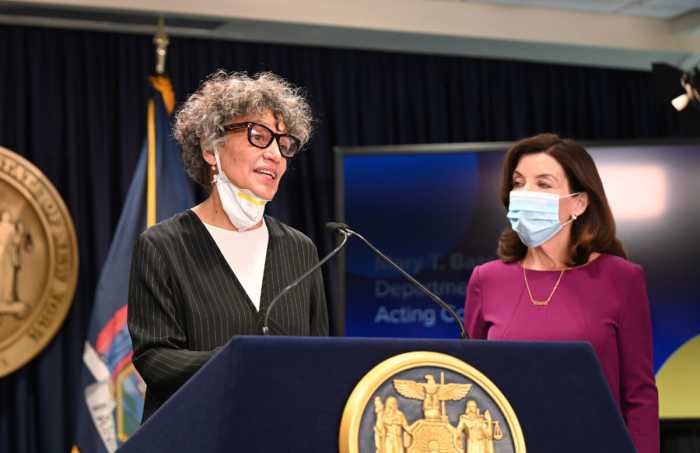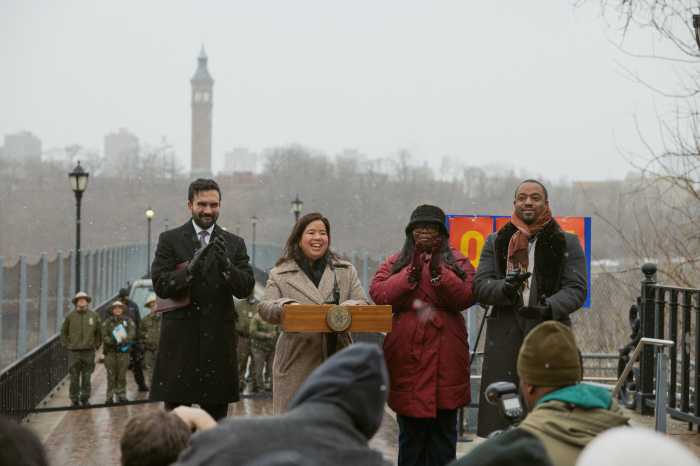After meeting with state lawmakers in a late in the game trip to Albany Tuesday, Mayor Eric Adams said he and legislators had a “good exchange of ideas” in his bid to retain control over the city’s public schools and push for several other key agenda items.
“I understand that these lawmakers want to hear from us, they want to hear from their constituents and, you know, this was a good exchange of ideas,” Adams told reporters. “We took a lot of notes. We’ve heard some great ideas around education. Greater ideas around NYCHA. Great ideas around public safety. And just a real good energy from all of us learning about each other in January and now we spent time up here and lobbying, my team up here, and sitting down with my colleagues. And it’s just a great conversation. And now they have to go back and say ‘based on what we heard, this is what we want to do.’ And I just respect the process.”
During a rushed press conference in which Adams only took two questions, Hizzoner said he spent the bulk of the trip making his case for why he and Department of Education (DOE) Chancellor David Banks should continue to control the city’s public schools – a policy known as mayoral control – for the next four years. Adams added that he also had time for some conversations on other important issues like addressing rising crime and long-standing problems with the New York City Housing Authority (NYCHA).
“The bulk of our conversation was around mayoral accountability,” Adams said. “We talked about NYCHA and some other topics. And we had some sidebars around public safety, and we do want to continue to push forward. Everyone knows that subject’s very important to me, but there are many other issues that we’re facing in the city at this time.”
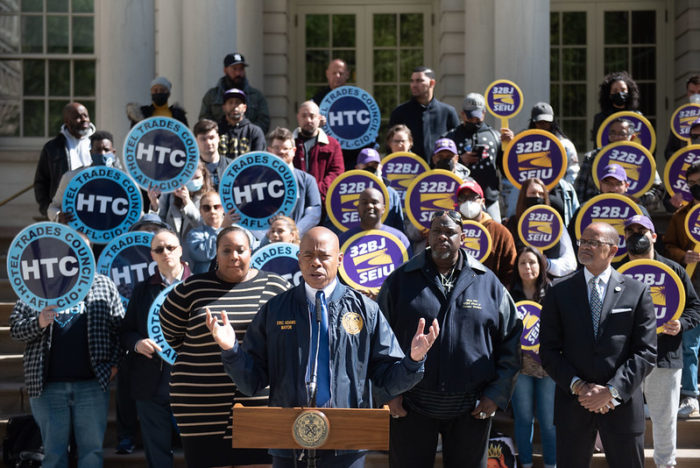
In addition to mayoral control, Adams went to Albany to push for the renewal of the 421-a affordable housing tax break and gain authority over the city’s speed cameras, both items he didn’t mention in the press conference.
The mayor traveled to Albany Tuesday after canceling a scheduled trip to the state capital last week because of a scheduling conflict, he said. The trip comes on the heels of reporting from the New York Post that the mayor’s Albany outreach team has been plagued by dysfunction and that Adams hasn’t spent enough time in the capital negotiating with legislators in person.
According to Adams’ public schedule, the legislative leaders he met with Tuesday included Assembly Committee on Education chair Michael Benedetto (D – Bronx), members of the state Black, Puerto Rican, Hispanic and Asian Legislative Caucus, state Senate New York City Education Committee chair John Liu (D – Queens), Senate Education Committee chair Shelley Mayer (D – TK) and other members of both the Assembly and Senate conferences.
However, the three most essential people the mayor had to negotiate with – Governor Kathy Hochul, Senate Majority Leader Andrea Stewart-Cousins and Assembly Speaker Carl Heastie – were not listed on his schedule. Instead, according to a published report, the state’s top executive and top two lawmakers joined President Joe Biden in Buffalo Tuesday to show solidarity in the wake of the racially motivated mass shooting at a Tops Supermarket Saturday.
Since taking office, Adams has repeatedly said that he and Banks need the continuation of mayoral control in order to accomplish their specific vision for the city’s public school system. Established in 2002, mayoral control gives the mayor the authority to choose both the school’s chancellor and nine members of the 15 member Panel for Education Policy (PEP) oversight board.
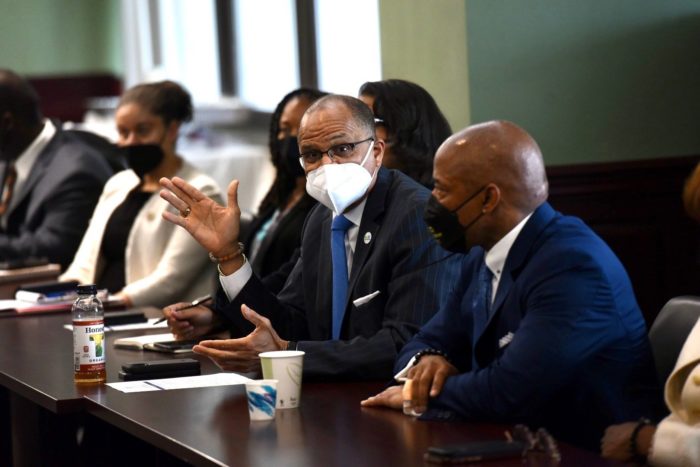
Benedetto told PoliticsNY that Adams and Banks spent their closed-door meeting trying to sell the longtime Bronx lawmaker on their vision for the city’s public school system and why they should get to carry it out. Benedetto said he was personally persuaded by the case they made, but ultimately the decision is up to the members of the Assembly conference.
They spoke to me about mayoral control and how much they want it,” Benedetto said. “And they have a vision for the schools and they want to accomplish it. And I told them that I kind of agree with them. I mean, but I told them also that I don’t make that decision. The Democratic conference makes that decision. We will probably put forward a proposal to my conference sometime during the next week or so. And hopefully that will be accepted by them.”
Benedetto said that while he and members of his conference had concerns over Banks’ ouster of a longtime Queens superintendent last week, he was pleased that the chancellor quickly reversed course this week in response to public outcry.
“They kind of said, ‘listen, we realized that maybe we didn’t make the best decision in the world and we kind of reversed ourselves on that. And we said that we’re going to be the type of administration that makes decisions but are not afraid to admit that maybe [we] made a mistake,’” Benedetto said. “And I kind of like that they realized that. That they’re able to admit when they made a misstep and are not afraid to try to correct it.”
While Benedetto said Adams and Banks spoke about the importance of increasing parental input in how the schools are run, something critics of mayoral control would like to see, they didn’t speak about restructuring the PEP in order to achieve that goal.
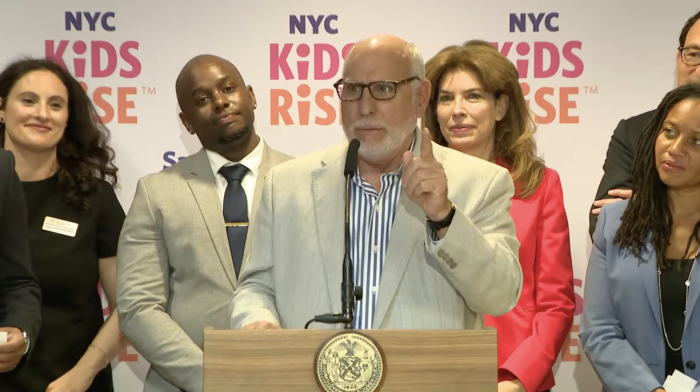
On the Senate side, Liu spokesperson Scott Sieber said the mayor was open to hearing legislators’ concerns and expectations regarding the continuation of mayoral control, something many of them hadn’t gotten the chance to do prior to Tuesday.
“The mayor was forthcoming, he answered everybody’s questions,” Sieber said. “Senator Liu’s been saying for a long time, he’s been in communications with the administration about mayoral control these last few months and it’s necessary for the mayor to be in Albany, to speak to other lawmakers who may not have a chance to speak directly to the mayor.”
Sieber said Liu fully expects there to be a resolution on mayoral control before the end of the legislative session, but it probably won’t look exactly like what Adams wants.
“It’s not going to be a straight up four year extension, as perhaps the mayor and the governor would like,” Sieber said. “But on the flip side, it’s not going to be reverting to the old model, either. So the prevailing thought is that it’s gonna fall somewhere in the middle.”


